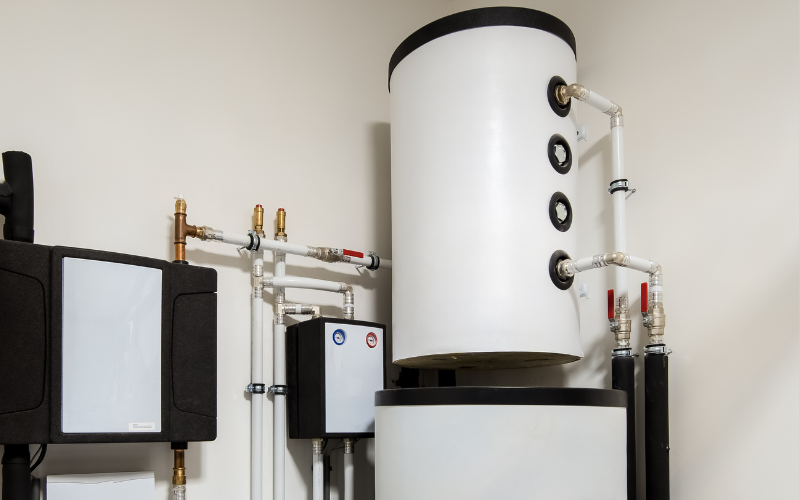According to the latest SunWiz data, the number of air-source heat pumps deployed each year has been growing by 50% since 2020. (Last year, there were four heat pumps installed for every solar hot water system.) A heat pump could be another way to help business owners achieve even greater energy-efficiency – and save on their energy bills.
What is a heat pump?
An air-source heat pump can provide efficient heating and cooling by absorbing heat from air outside a building and releasing it inside. When properly installed, these can deliver up to 3x more heat energy than the electrical energy it consumes.
Heat pumps are considered critical to phasing out gas boilers to avoid their greenhouse gas emissions.
Which businesses might use a heat pump?
Any business that uses heating or air-conditioning. Heat pumps can be used for air-conditioning, cooling drinking water, space heating and heating water. (In Australia, heat pump water heaters comprise approximately 3% of water heaters in use.)
Industries that rely on precise temperature control for manufacturing processes could make effective use of a heat pump. Some examples are food and beverage manufacturing, pharmaceutical development or many agribusinesses.
What are some benefits of heat pumps?
- Save energy compared to gas heaters or conventional electric water heaters – heat pumps can deliver up to 10-15 times as much energy as they use.
- Premium heat pumps can heat a room at 600% efficiency, while gas heaters are around 50% to 95%.
- Save on running costs.
- Two for one heating and cooling; they can also keep premises cool in summer.
How much does a heat pump cost?
The cost of a heat pump depends on the heat requirements of the business. It could cost as little as $5,000 for a smaller business or $15,000 for a 41KW commercial pool heat pump or $35,000 for an aged care facility that uses up to 20,000L water a day.
Want to learn more about payment solutions for your business or your customers?

